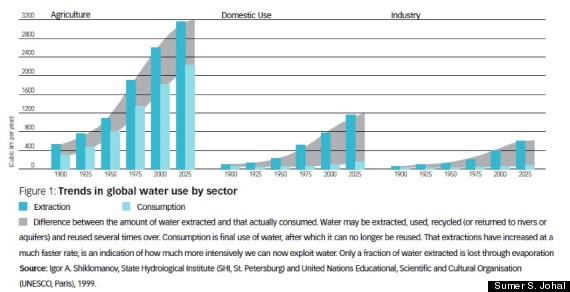As a young boy growing up in India in the 70s and 80s, I was always struck by our dinner conversations when they (often) revolved around agriculture and food. My dad would discuss the harvest, the labor issues, the changes in government policy, etc. and my mom would focus on the food, the nutrients, the taste and the market prices.
In all these discussions, three things always struck me:
One, that the practice of agriculture was difficult - physically and economically - but emotionally satisfying.
Two, that it was complex -- there were a lot of variables involved in any decision my father took for our farm - weather, government policies, labor availability, food prices, land prices, interest rates, equipment costs, (just to name a few) -- all were considered all the time at both ends of the entire food ecosystem.
And three that my family wanted me to get out of farming and become a professional (doctor or engineer) - the hardship and complexity was just not worth it; other professions were more efficient at making money.
Quite a message to digest for a 10-year-old. But even more importantly, quite a paradox -- if the world indeed needed is challenged by population growth, don't we need more, smarter professionals as growers, not fewer? And, shouldn't we have more emphasis on making the food ecosystem profitable and efficient, so young people don't leave this important vocation as a career choice? And shouldn't the best technologies be constantly focused on making food tastier, more nutritious, more affordable, more efficient and safer while also allowing farmers to earn higher profits? How can we achieve this? Clearly my parents couldn't imagine that future. They saw the food ecosystem as a zero-sum game. But then again, neither could they imagine Google, Facebook, Amazon, Netflix or Verizon. And the common denominator to all these recent breakthroughs has been - Information and the ability/technology to disrupt the status-quo in real-time. Instant gratification.

Today, we face the perfect storm for our food supply -- climate change, regulations, population growth and a global supply-chain have aligned to necessitate the use of information. E.g., we will improve water use inefficiencies in the system if we are informed on how to produce the same yield with less water. We will no longer over- or under-fertilize if we are informed on the optimum use of nutrients that help us sustainably grow tastier and more nutritious food.
The key is to this "informed" food ecosystem, I believe, is to share in its creation and use. All stakeholders -consumers, growers, processors, retailers, natural resource managers, regulators, ag-chem vendors -- must participate proactively -- despite their sometimes conflicting perspectives -- in authoring-using-evolving this information, just as they do in growing our food today. And the stakes are big and fundamental to the existence of all living things on our planet - our collective success in ensuring a food ecosystem of "tomorrow" depends directly on our collective success in nurturing, contributing to, and using the information about our food today.